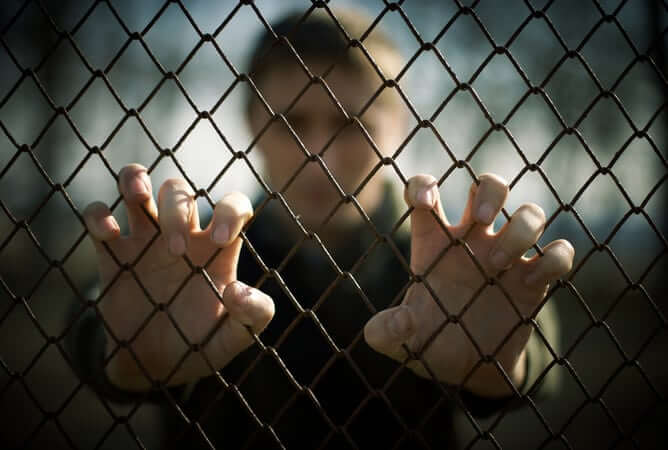This article has been written by Moumita Mondal, pursuing a Certificate Course in Advanced Criminal Litigation & Trial Advocacy from LawSikho.
Table of Contents
Introduction
In the eye of the law, the offence committed by a child is no crime. There are various factors under which the child commits a crime and these include poverty, lack of education and mental factors, etc. Many International organizations have enacted many rules and regulations through which the law cannot punish the child.
It is mentioned in Section 82 of the Indian Penal Code, 1860 that the child aged below seven years would not be considered an offender if he has committed an offense. According to Section 83 of the Indian Penal Code, a child would not be considered an offender if he is aged above seven years and below 12 years, and also does not possess the mental capacity to understand the nature and result of the act which is erroneous or opposed by law.
In Nirbhaya’s case, four men were given the death penalty whereas another person was acquitted as he was 17 years at the time of the commission of the offense. The most heinous offense was committed by him and still, he was not given any punishment as he didn’t attain the age of majority while committing the offense.
This article will discuss the provisions, guidelines, and initiatives relating to the offense committed by a child.
Legal action on children committing a crime in India
About Juvenile Delinquency
The child would not be guilty even if he has committed any offense. But on the other side, the adult would be punished if he has committed any crime.
According to Section 3(i) of the Juvenile Justice (Care and Protection of Children) Act, 2015, a child below 18 years is innocent even if he has committed an offense.
The Juvenile Justice (Care and Protection of Children) Act, 2015 was enacted to provide care, support, and development to the child instead of punishing them.
This Act helps the children to have access to the resources which would facilitate their growth and development. This Act not only promotes growth but also prevents the child from committing any further crimes. The purpose of this Act is to intervene the child from going on the wrong path.
There are two kinds of programs which helps the child to educate themselves to prevent the delinquency is as follows:
- Individual Program: The proper counselling and the right treatment are necessarily provided to these children to prevent them from developing the nature and behaviour of criminality. Education plays a very crucial role in their lives. And, education helps to promote self-growth and a sense of understandability in them.
- Socio-Economic Program: Training provides these children to develop their skills.
Provisions relating to the Juvenile Justice (Care and Protection of Children) Act, 2015
Section 14(5) explains the methods followed by the Board so that the inquiry could be conducted in a just and rapid manner. The Board follows the steps which are required while carrying the inquiry are as follows:
- The Board will assure that the torture has not been caused to the child by police or another person including a lawyer or probation officer. And the board can take strict action if any kind of torture is inflicted on the child.
- The proceedings will be conducted smoothly and a cordial atmosphere would also be provided to the child while the proceeding is carried.
- The child will be given a chance of being perceived and also to take part in the proceedings carried under the Code of Criminal Procedure, 1973.
- In the case of minor offenses, the Board will willingly initiate the summary proceeding as per the method mentioned under the Code of Criminal Procedure, 1973.
- If the offense is grave, the Board will initiate the trial proceedings accordingly under the Code of Criminal Procedure Code, 1973.
- The Board will conduct an inquiry of heinous offenses:
- The date on which the offense was committed by the child aged below sixteen years;
- The date on which the offense was carried out by the child aged above sixteen years and then, the offense will be dealt with accordingly in the manner under section 15.
Section 15(1) says that if the child aged above 18 years or has already completed 18 years during the commission of a serious offense, then the Board will pass an order under section 18(3) after examining the mental and physical capacity, capacity to understand the results, situation under which he has committed the offense.
Section 18(1) says that if the child is regardless of any age has committed a minor offense or has committed an offense which is grave in nature, then the Board will carry out an investigation to acquire the report and also the details of his past acts based on the complexity of the offense committed by the child. The Board follows the steps which are as under:
- After conducting a suitable inquiry and counseling for the child and parents or guardian, the Board may let the child go home;
- Direct the child to take part in group counseling and alike activities;
- Direct the child to take part in the community services under the administering organization or institution, or a particular person or a group of a person recognized by the Board;
- Direct the parents or the guardian of the child to pay a fine; If the child is employed, then it is necessary to notice that there is no violation of labor law;
- After examining the child, he will be discharged based on his good behavior not exceeding more than three years and, then he will be transferred under the care of his parents on bond with surety or without any surety;
- Order the child to be placed in a home that should not exceed more than three years. During that period, the child will get facilities consisting of education, skill development, therapy for changing behavior, and also guidance from psychiatrists. And, if the Board finds that the behavior of the child is not according to the child’s desires or differs from the behavior of another child residing in the home, then he may be sent to a safe place.
Section 18(2) prescribes others which the Board may pass. These are:
- Direct the child to go to school;
- Direct the child to take part in vocational training;
- Direct the child to visit a therapeutic center;
- Restrict the child to go to such a place which has already been visited or appeared by him;
- Direct the child to attend a de-addiction program.
Section 18(3) says that no trial will be initiated against the child as, unlike an adult. And, after a preliminary assessment, the Board will direct the transfer of the case to the children’s court.
Section 23(1) says that if a person commits a crime along with a child, then the person who is of adult age would be tried accordingly with the charge alleged against him. But, the child would not get any punishment for the offense which he has committed. Section 23(2) says that during the inquiry if the Board or the Children Court finds that the person is not a child then the person will be punished according to the offense committed by him.
UN’s guidelines on children in the criminal justice system
Origin
All the UN members have enacted the guidelines on children in the Criminal System. These guidelines are not compulsory and also do not have any obligatory effect on any country as it is neither judicial nor legislative.
On the recommendation of the 8th UN Congress, the General Assembly adopted Riyadh Guidelines in a meeting which was conducted on 14th December 1990. The guidelines were addressed in a meeting which was held at the Arabic Center in Riyadh for Security Studies and Training and therefore, it is also known as Riyadh Guidelines.
These guidelines act as preventive measures which aim to intervene in the youths who are obliged to commit an offense in any situation.
Purpose/Objectives of the Guideline
The purpose for which the guidelines relating to the prevention of Juvenile Delinquency were framed are as follows:
- To intervene the child from committing any further offense.
- To protect the well-being, rights, and interests of the child.
- To support the child who belongs to a poor family.
- To ensure the overall growth and development of the child.
- To inculcate good values in the child.
Other provisions
Some of the provisions under the Convention on the Rights of the Child are discussed below:
Article 1 refers to a child who is aged below eighteen years and has not reached the majority.
Article 4 says that all the States must take legislative, administrative, and other necessary steps for the enactment of the rights which are proclaimed by the Convention. These steps should be taken within the framework of international cooperation.
Article 9 says that the child has to be cared for by his parents. It means that the child cannot be detached from his parents unless the parents avoid him.
Article 37 says that the children should not be imprisoned and no other form of torture should be caused to them. And, also they are not allowed to reside with the adult prisoners.
Article 40 says that every child has a right to seek legal aid, a right to claim a trial, and a right of fundamental freedom.
Conclusion
Crime has become a problematic issue for every country. It is necessary that instead of punishing these children, they must get good care and protection under the supervision of governing law. If these children were punished, then later, they would become habitual criminals. The Juvenile Justice Act had differentiated between the mental capacity of a child and the intentions of an adult of committing a crime.
Young children are the future of the nation. Thus, the government should take the necessary actions to provide better education and skill training programs to these children. Education must be provided to these children so that they could become productive citizens of their nation.
References
- http://www.legalserviceindia.com/legal/article-1289-juvenile-delinquency.html
- http://www.legalserviceindia.com/legal/article-1724-juvenile-delinquency-in-india-causes-and-prevention-.html
- https://files.eric.ed.gov/fulltext/ED504480.pdf
- http://cara.nic.in/PDF/JJ%20act%202015.pdf
- https://www.ohchr.org/Documents/ProfessionalInterest/crc.pdf
- https://www.unodc.org/pdf/criminal_justice/Guidelines_for_Action_on_Children_in_the_Criminal_Justice_System.pdf
Students of Lawsikho courses regularly produce writing assignments and work on practical exercises as a part of their coursework and develop themselves in real-life practical skill.
LawSikho has created a telegram group for exchanging legal knowledge, referrals and various opportunities. You can click on this link and join:
 Serato DJ Crack 2025Serato DJ PRO Crack
Serato DJ Crack 2025Serato DJ PRO Crack











 Allow notifications
Allow notifications


